|
Computational engine:
Syntax
x = sparse_call(i, j, s, b);
uses vectors i,
j and
s to generate a square full-rank sparse matrix
A such that
A(i(k),j(k)) = s(k), and solves
the system of linear equations Ax=b.
A must not be larger than ~50,000 x 50,000 for
solution to converge.
Download
sparse_call
(for 64-bit Windows, Matlab)
sparse_call
(for 64-bit Linux, Matlab)
sparse_call
(for 64-bit Linux, GNU Octave)
|
Description
The main computational engine of the FEM Toolbox provides solution of the system
of linear equations Ax=b,
where A is large, sparse, and symmetric positive-definite matrix.
We use iterative methods to solve the system of equations,
and sparse matrix format to store and manipulate matrix A.
Computational library for sparse matrices was written in C++ using templated classes
and functions. It works under Linux and Windows. To demonstrate its capabilities,
it has been used to create mex-function sparse_call().
Examples
Here is an example demonstrating how to solve Ax=b,
where sparse matrix A has different structures and different condition
numbers. The quality of the solutions obtained with the sparse matrix
library is compared with the Matlab solution using
backslash operator x=A\b. In all cases the error is close to Matlab
floating-point relative accuracy.
Download test data (in rcv*.txt A is stored
as coordinate list, and b*.txt stores vector b):
test data (11.18 MB)
A=load('rcv1.txt');
b=load('b1.txt');
x=sparse_call(A(:,1)-1,A(:,2)-1,A(:,3),b);
% compute Matlab solution using backslash:
B=sparse(A(:,1),A(:,2),A(:,3));
x1=B\b;
% generate figures:
figure(11); spy(B)
figure(12); plot(1:length(x1),x1,'ko'); axis square
figure(13); plot(1:length(x),x-x1,'ko'); axis square
In a similar way, one can obtain solutions for the other three examples
using rcv2.txt with
b2.txt,
rcv3.txt with
b3.txt, and
rcv13.txt with
b13.txt.
Figures 1-4 illustrate results obtained from the test data.
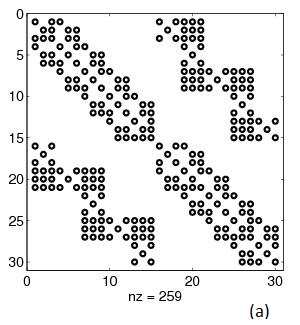
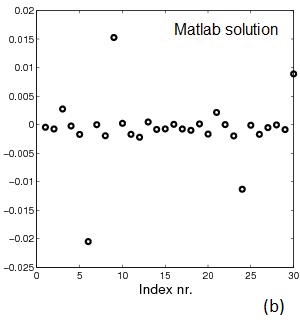
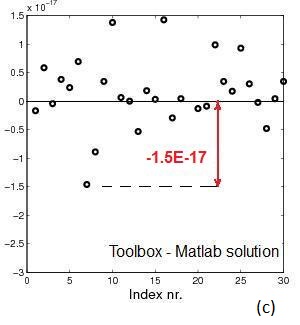
Fig.1 Example 1. A is 30x30. cond(A)=3,175: (a) sparsity
pattern of A, (b) Matlab solution x=A\b,
(c) error between solution using Matlab's "\" and sparse_call()
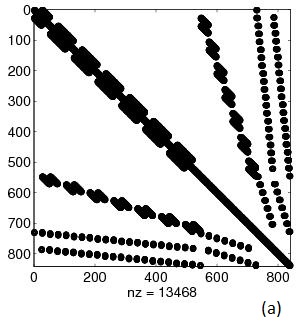
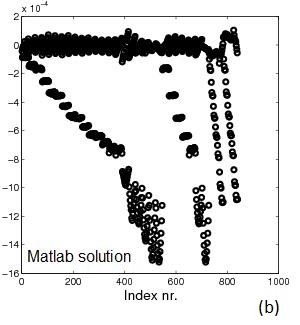
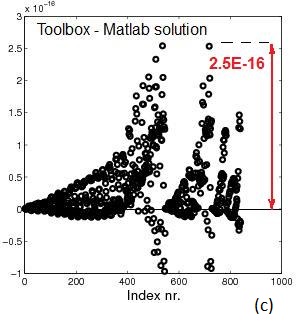
Fig.2 Example 2. A is 840x840. cond(A)=695,088: (a) sparsity
pattern of A, (b) Matlab solution x=A\b,
(c) error between solution using Matlab's "\" and sparse_call()
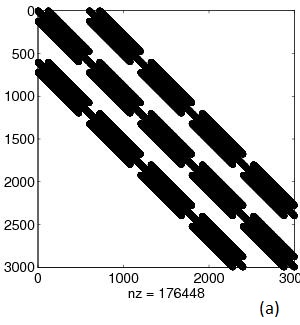
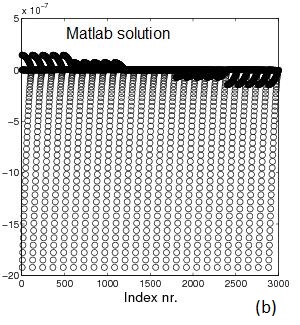
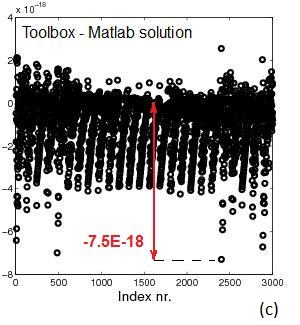
Fig.3 Example 3. A is 3,000x3,000. cond(A)=2,993,749: (a) sparsity
pattern of A, (b) Matlab solution x=A\b,
(c) error between solution using
Matlab's "\" and sparse_call()
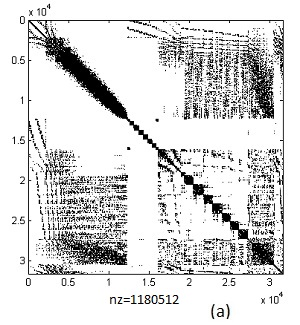
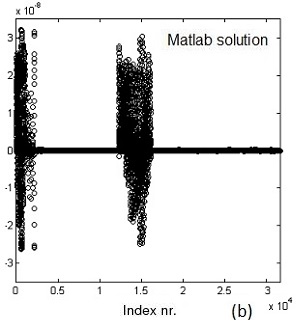
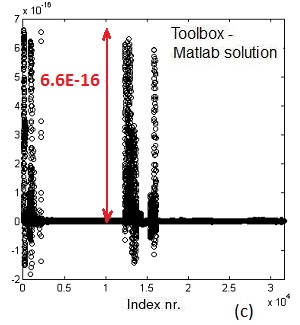
Fig.4 Example 4. A is 31,581x31,581. cond(A)=708,400: (a) sparsity
pattern of A, (b) Matlab solution x=A\b,
(c) error between solution using
Matlab's "\" and sparse_call()
|
|

